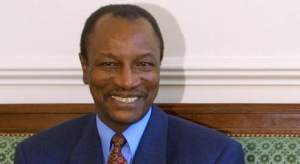This post is brought to you by guest blogger the new economics foundation (nef).
The UK's ever-growing well-being data set will prove hugely important for future policy making.
As of today, the UK is the proud owner of the biggest official well-being data set for any single country within a single year. With around 80,000 respondents answering the well-being questions in the Office of National Statistics’ Annual Population Survey for 2011, we’ve just pipped Ecuador’s Survey of Employment, Unemployment, and Sub-employment to top spot*. And we’re just at the beginning – in July this year, the Office of National Statistics will release data for around 200,000 respondents on well-being.
These data are providing a unique opportunity to really understand what determines well-being and how it changes over time. Already, this information will allow policy-makers and those whose role it is to hold government to account to identify policies that will be beneficial to well-being and avoid those that will be harmful to it. Over time, as year-on-year data emerges, we’ll be able to get an incredibly rich picture of how the recession is impacting different sectors of society. ‘Average’ life satisfaction may still be 7.4 for the UK, but what is happening below the headline?
The actual raw data from the Annual Population Survey has not been published today – that will come out in four to six weeks. But already, the overall figures reveal some interesting stories.
Firstly, whilst London may be the richest region in the UK, and one of the richest cities in the world, it is also the region with the lowest levels of life satisfaction (7.2 out of 10 compared to the UK average of 7.4 out of 10), and the highest levels of anxiety. Meanwhile Northern Ireland has the highest levels of life satisfaction.
Secondly, the results show support for the idea of redistributing employment. Whilst the unemployed have the lowest levels of well-being (6.5 out of 10), people in part-time work were marginally happier than those in full-time work. Further analyses will need to be done on the raw data to unpick how income, wealth, and household composition shape this outcome, but it suggests that reducing working hours reduced rather than laying off staff may sometimes be a well-being effective way to deal with the economic crunch in some contexts.
Lastly, it is worth highlighting the special place of that fourth question in the survey: “do you feel the things you do in your life are worthwhile?” Until the raw data is publicly available, we can’t fully unpick what this question is doing, but already an interesting finding has come out –people with children score higher specifically on this question. If we believe that people’s well-being is more than just about satisfaction or happiness, this will be an important one to watch.
* Ecuador’s survey in 2007 covered 76,922 respondents, and included questions on happiness, life satisfaction and satisfaction with domains.




